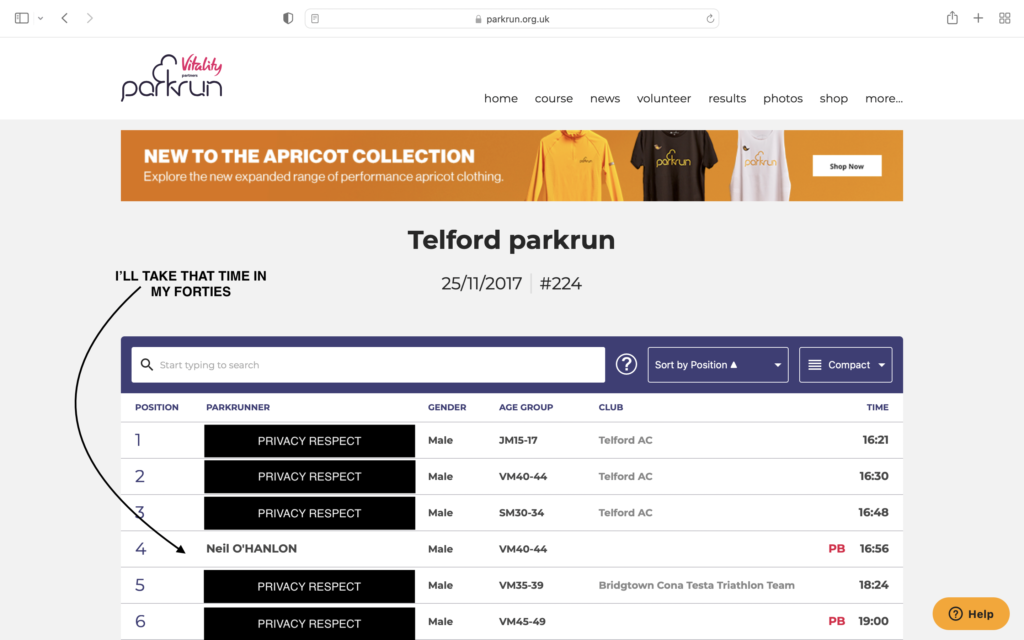
Distance Means Nothing It’s All About Time On Your Feet
By Neil O’Hanlon
You’ve probably heard this comment at some point in your fitness journey. Real runners clock the distance and not the time. Thats for novices right? I myself used to think like this for many years but not anymore. In fact running by time instead of distance might be just what you need. I believe its mentally more doable than stressing over the distance, as 30 minutes running sounds easier than having to clock let’s say 3 miles. It gets you fitter quicker, and eliminates turning into a mileage junkie. Since I’ve been doing it I haven’t looked back, Its genuinely better!
The simple truth is It’s all about time on your feet. 45 minutes running 5 miles or 45 minutes running 3 miles is still 45 minutes running total! Your body has still had 45 minutes of cardiovascular activity regardless.
Ok, so I’ve been using distance for years. I admit I would obsessively analyse my GPS watch data all the time. I’d do the back and forth running in front of my house or another lap around the block to make sure the distance on my Garmin had the desired mileage showing.
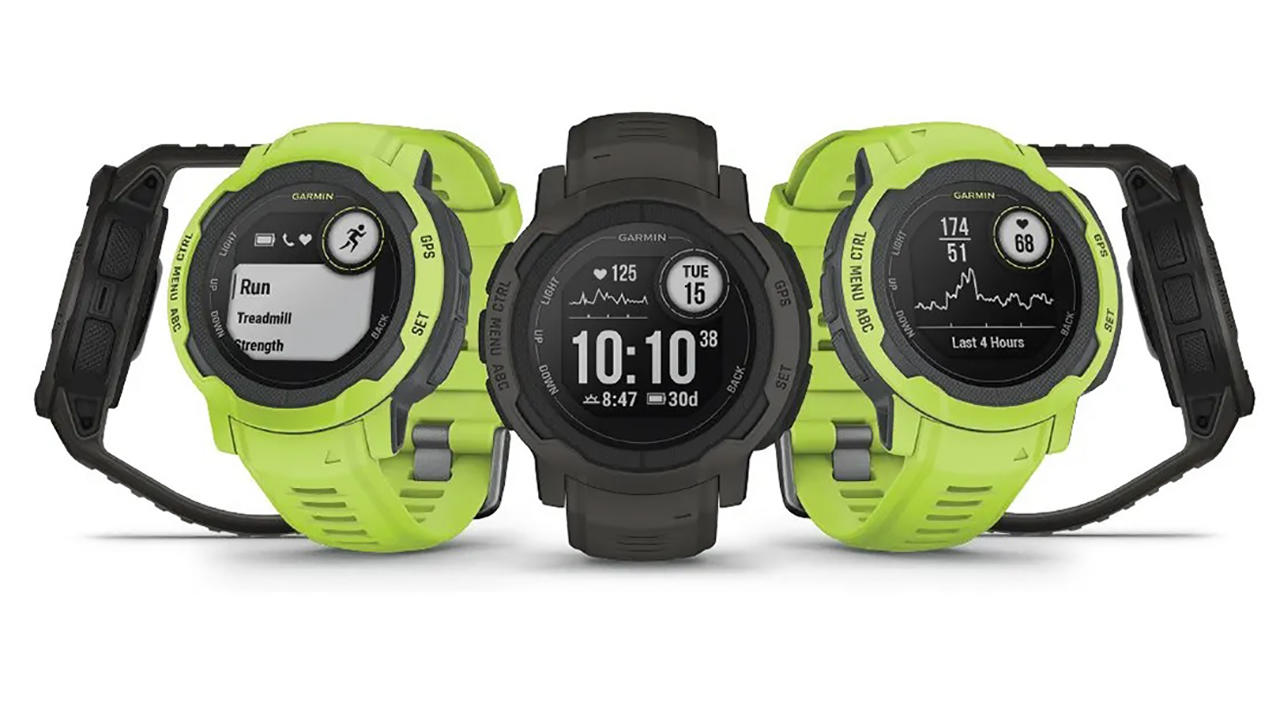
‘And I made damn sure at the end of the week it was always a round number’. These days are mostly run by minutes and to be honest, training is so much less intense and in many ways so much more enjoyable. I do the time I need to do and then I get on with my day, rather than feeling annoyed at the imperfection of mileage when I wasn’t able to get it just how I wanted it!
Recent Results From Time Based Training
Now don’t get me wrong there’s nothing major wrong with the mileage way of training, but switching to time-based training help me get Personal bests of 1:16 for half marathon, 34:40 for the 10K and 16:52 for the 5K.
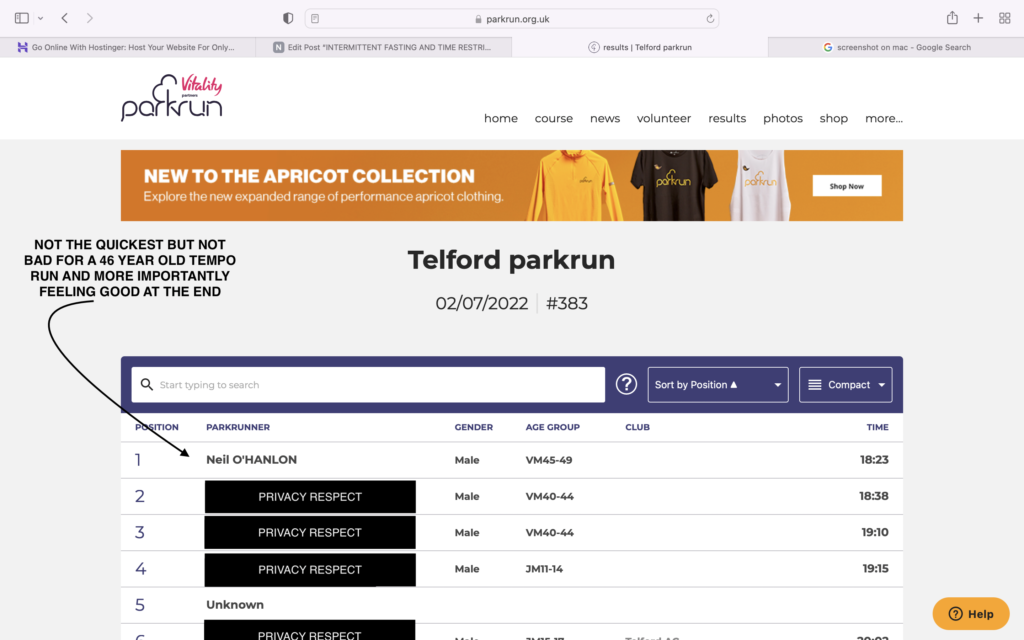
Its 100% Effort Based
Think of it this way. I focus all my effort for the time I have allocated. So let’s say Its a ‘hard’ run day, I simply run hard for 45 minutes regardless of how many miles I cover in that time. Don’t get obsessed with your pace, your body knows if its running hard or not and I’ve found the best way to measure this is by heart rate. If you have a heart rate monitor on your watch then you can easily track that you’re working hard enough. That said it’s not always necessary, as running by feel will give you equally enough feedback.
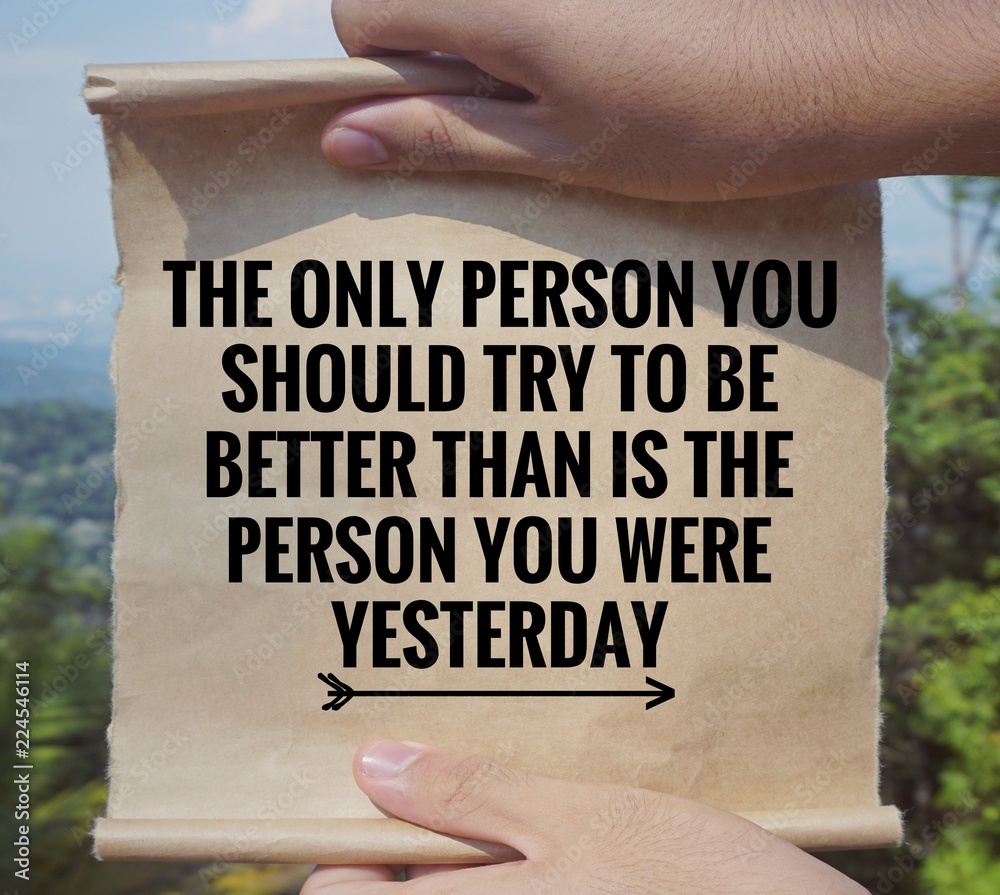
Sometimes when we’re not looking at paces we actually end up going faster than we expected.
If it’s an ‘easy’ run day then I simply run easy for the 45 minutes or whatever time I have allocated myself using the same principles as just mentioned above. The beauty of this method is you can use it on the trails, hills, road, track etc, but the point is I know, that if I do this, and can honestly say I worked hard or easy or whatever the training day is for the duration then that’s good enough for me.
Learn To Be Comfortable, Being Uncomfortable!
As I said, It’s 100% effort base so this puts me in a position where I can be comfortable being uncomfortable. For instance if I know I can race a 10K in about 35 to 36 minutes. Therefore if I trained hard for 45 minutes on my ‘hard’ run day, then I know I’m more than capable of running this amount of time in an uncomfortable state.
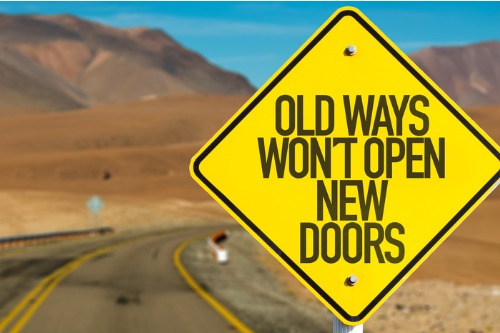
Remove The Pressure And Expectations
I think regardless of level, speed, ability or experience, time based programs are something to consider. You can still ramp up your mileage, just allocate extra time for your running. Training for time and keeping it 100% effort based will get you race ready, help you keep in shape whilst getting fitter and faster than before. The one huge bonus for me though, it removes a lot of pressure and expectation. Pressure and expectation in our running that can take a lot of the fun out of it!

No Expectations, No Disappointments
I’m not saying I was wrong to run for distance rather than minutes in the past, but I truly believe distance training is for certain periods of our lives and not necessarily all the time. At some point we can all use a break to the reduce the stress that mileage obsession puts on us.
Stay in your own lane and do your thing, thats all the matters in the long game
Do What You Can On The Day
I believe most of your running should be about getting in the work as best you can. Doing the best you can, in any given situation you’re presented with on that day, regardless of what you’ve been told, or what top dog in the running world has spouted out to you. Do your own thing and allow it to create a fitness far beyond what you have achieved before.
So many of us are scared of change, maybe we think trying something new will derail our fitness goals. The mileage won’t be as high as other people expect. Our pace will suffer and we will feel incomplete? But here’s the thing below……

It’s not the size of the dog in the fight, It’s the size of the fight in the dog on the day….
Your Body Doesn’t Know What A Mile Or Pace Is?
With the above truth, then If like me you are coming back from a long-term injury or illness then comparisons to others mileage times can be very dangerous. Running by time stops the ability to compare. You have nothing to compare to. Your body knows its limits and will tell you when to push and when to back off.
“A very wise mentor once said to me: Your body does not know what a pace is. It does not know what a mile is. It does not know anything except for where this falls on the level of difficulty it can handle and the amount of time on your feet”

Comparison Is The Thief Of Joy
Weirdly though it’s a numbers game. Running for minutes instead of mileage allows you to get higher numbers clocked up, which helps you feel more confident about what you’re doing. It also limits how much you can compare yourself to other runners who are running for mileage.
While this may not eliminate you comparing yourself totally, it can help you stay focused and disciplined.
This way you’ll be able to build up to a higher number of minutes, whilst being out there the same amount of time as a more experienced runner who’s pounding the miles out. By changing from distance to time might go a long way for you. It means you can run in all kinds of different places without feeling like you have to run a certain pace or keep up with the masses.

As long as you stay away from comparing yourself to others, thats the key.
Beginners Should ‘ONLY’ Start Running For Time
In my humble opinion ( and this may sound controversial and that’s why I’ve included the infographic below) but if you’re a beginner, then running for time not distance should be the only way to increase your mileage. The reason I say this, you have zero running to compare to and the minutes you allocate seem like a lot which is good!
The harder you run, the less you can do, the easier you run, the more you can do, it’s that simple!
Hey but what if you’re not a new runner? Maybe you’ve been running for years. You’re experienced and always run by miles. What if you have a big goal and have been working hard to get there? Why would you bother running by minutes when miles has worked well in the past? I get it! I was dubious too. I always thought I needed miles to motivate me and you probably do too. However I have to admit that even on my various returns to running from injury or illness I still choose to run by time over distance. It just makes total sense.
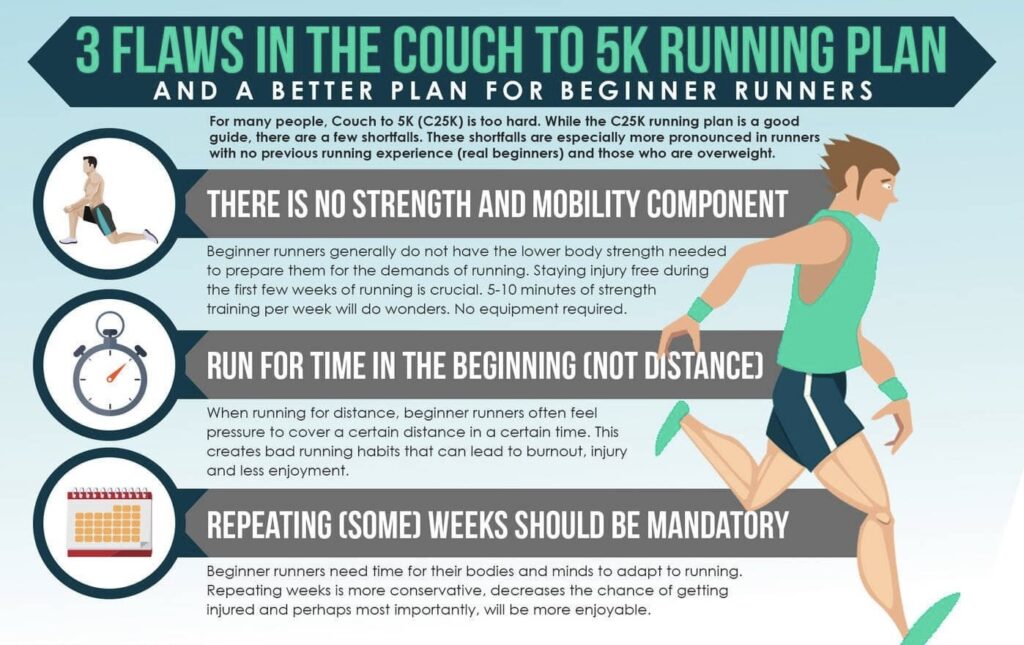
30 whole minutes of running sounds a lot more impressive to our psyche than 1.5 miles.
Its Time To Get Your Head Out Of The Way
Let’s say you’re someone who has a really big goal. Maybe you think that running a certain number of miles or a certain pace will convince you that you’re ready, and will give you the confidence to perform on race day. Yes it can, but even using time over distance will equally do the same thing. But when you’re out there in the moment, and you find yourself mentally struggling and questioning why are you even doing this.

You may be looking at your watch and the mileage doesn’t seem to be clocking up quick enough and its putting your head in a negative space, then it might be a good idea to look into running by time over distance.
Running this way can help get your head out of the way and helps you focus on getting through the minutes you have allocated.
Ok, So Lets Look At A Simple Example Of How One Of My Runs Work
Let’s say I would normally run 7 miles in a training session. If my goal 10k race pace is 6 minutes per mile on average, which brings me in on a time of roughly 37 minutes, then If I run 7 x 6 minutes that equals 42 minutes regardless of how hard I push it, I’m still getting the required time on my feet thats needed. Yes, if a certain time is your goal then these training sessions will be at a high to hard tempo, but you’re still getting over and above the time on your feet. But here’s the thing. Because you are no longer obsessing and looking at your watch, and running purely 100% effort based then if your feeling good you may end up running 7×1.2 miles. If it is particularly humid that day, or your running on tough trail instead of smooth road or maybe just had a really bad night sleep then maybe you only make it 7×0.9 miles, but regardless of what the mileage says 5.3 or 6.8 you have still put in 42 minutes worth of effort and time on your feet.
This means you still get the practice in for race day without overdoing it. You don’t have to force yourself to do extra just because some variables made it change or the mileage wasn’t spot on.
Let It Go Guys – You’ll Be Much Happier
I actually really enjoyed getting to the end of the week and finding out what my mileage was, but rather than letting it ruin how I feel when Its a little less than expected. Another thing to consider is that you didn’t allow your head to freak you out because you didn’t know how fast you were going.

I now let it go because I know I did my best for that week. I stuck to the time I allocated for myself. I based it on effort and time. I still look over the mileage for my runs but always afterwards when I’m back home. I look at what I averaged but then it is on with the day.
Don’t Get Obsessed With The Mileage
I can also let it go when I get back to my starting point and my time is up. If my watch says 6.9 miles rather than 7 miles, then so be it. I’m able to just come to a walk satisfied I have done what I needed to do. Running by time is a way to feel success rather than frustration and disappointment in yourself for not doing enough distance. In my experience running for distance can make you feel like you need more and more, and as the pic below shows, it will eventually break you down.

Running for time you know exactly how long it will take. Going faster doesn’t help you in any way, which means you are less likely to go faster than your body is ready and recovered to go.
You just go whatever pace feels right for that specific training session.
Run The Correct Effort For The Time Allocated
Like I said before if it’s a ‘hard’ run, then run a hard effort for lets say 30 minutes. If its an easy run then you can run an easy effort for 60 minutes at whatever speed feels like you are recovering. If you’re someone who runs too fast on their easy days, running for time will mean that it doesn’t matter how fast you go, you don’t get finished any sooner. There is no point in speeding up? You will run whatever pace actually feels easy.
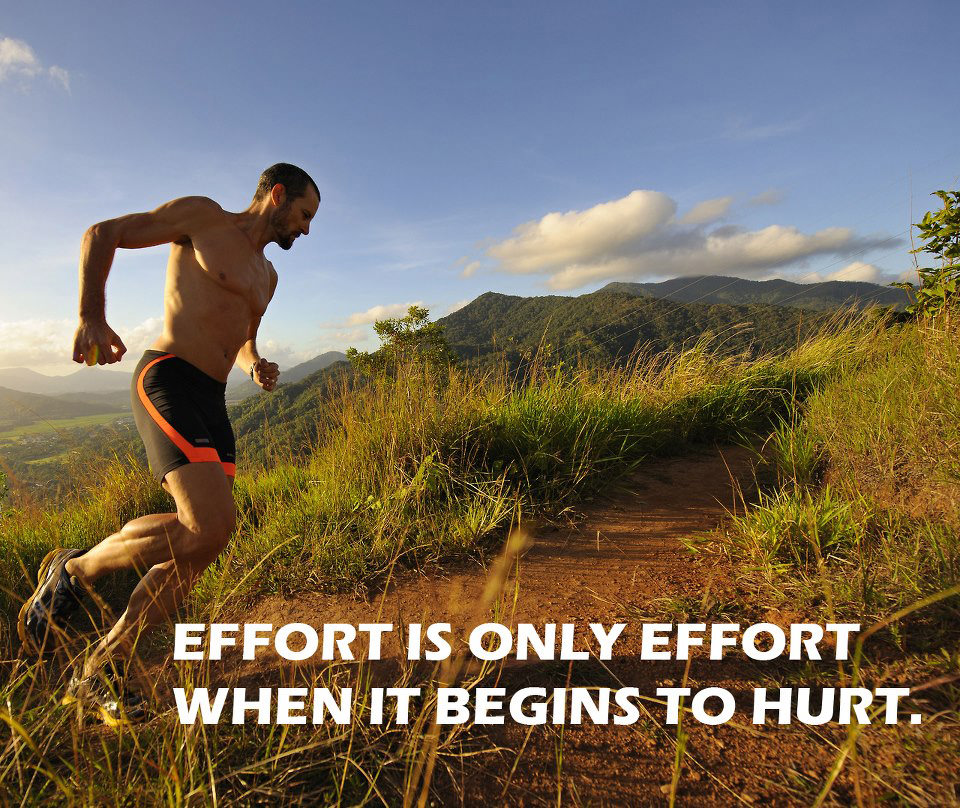
If you’re trying hard to reach a goal but just can’t seem to get there, you try harder and harder but you seem to get further and further away this doesn’t mean you’re less committed, it just means you should be trying a less stressful version of your training plan.
Less pressure equals more likely to reach a goal
How To Run By Time Instead Of Distance. What Are My Options
So if you’re prepared to give it a go, there are varying ways to do it. Maybe you’ll start with mixing up time based runs with distance based runs or just maybe you’ll do total time training from the start. You can go all in like I have. That means running totally by effort, no paces involved in any of your runs. Don’t worry you can check your watch when you get home. You’re easy runs, hard runs, and long runs are all done by time.
This is how I do my time-based training
Use your average easy run pace and convert that to how many miles roughly you would like to run. Work out how many minutes to do for your easy days.
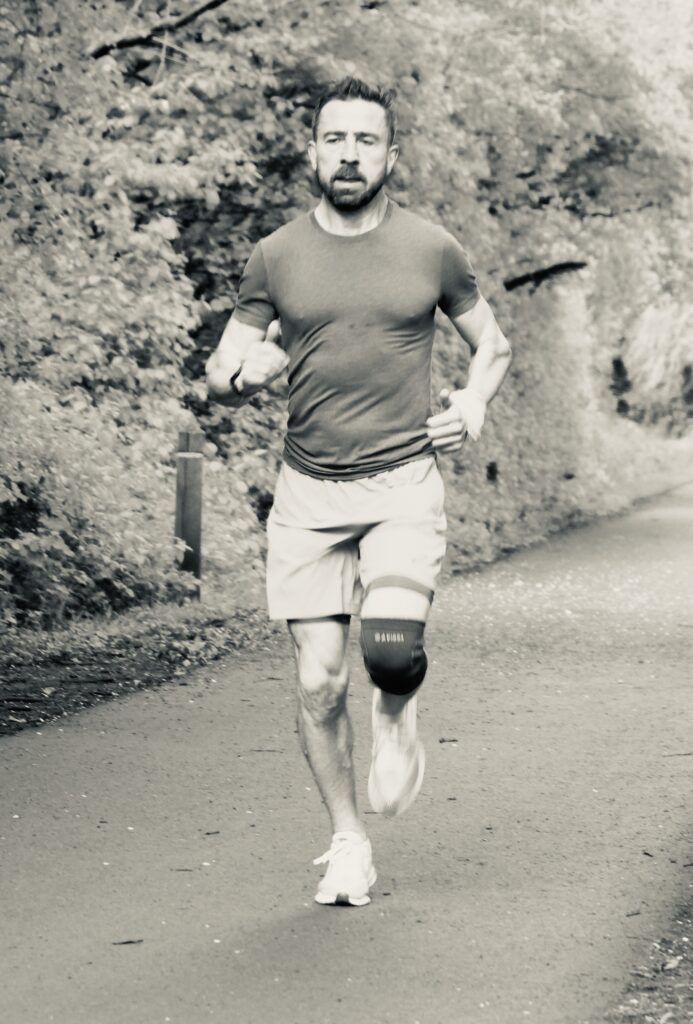
For example if you usually run 10 minute miles for your easy runs and you usually run about 7 miles per session then sometimes you might run 10.5 minute miles on easy runs when you’re feeling a bit tired and other days when you feel good you might run closer to 9.5 minute miles. If you go in the middle and just use that conversion every time for your easy runs, then once you’ve figured out what each mile run converts to, ie: 6 miles equals 60 minutes, 7 miles equals 70 minutes, 8 miles equals eight minutes etc, then just do that every time.
No need to re-calibrate again
Long Runs, Easy Runs And Hard Runs
When it comes to ‘long runs’, think about how long you are out there. Take your previous long runs in other training segments and just run for those durations of time during this training segment. Bit extreme, but if you previously did 4 x 20 mile runs that ended up being around 3 hours within your 16 week marathon plan, then do 3 hours four times this segment.
Long runs go by hours and hard runs go by minutes You really can do everything here. Keep it simple
Forget About The Miles
Forget about the miles and instead think about reaching the minutes you will be spending out there or the equivalent time on your feet.
Universal For Everyone
This is not even necessarily for those of you who have changing goals and not really sure where you’re running is going right now. You could easily incorporate this approach to all of your training.
Running For Time Helps The Body Recover
This should be for everyone. Yes, even you with the type A personality who feels you cannot possibly sacrifice your weekly mileage. Give it a try, it may take a few days to get used to but you’ll feel a sense of peace and rejuvenation when you do. You will end up running the pace your body needs for recovery. If you run by feel you won’t go far wrong. Yes maybe thats a little slower than it used to be, but your body probably needs it. This way your body will run faster when you need it to. Isn’t that the best way to have it?
The Takeaway
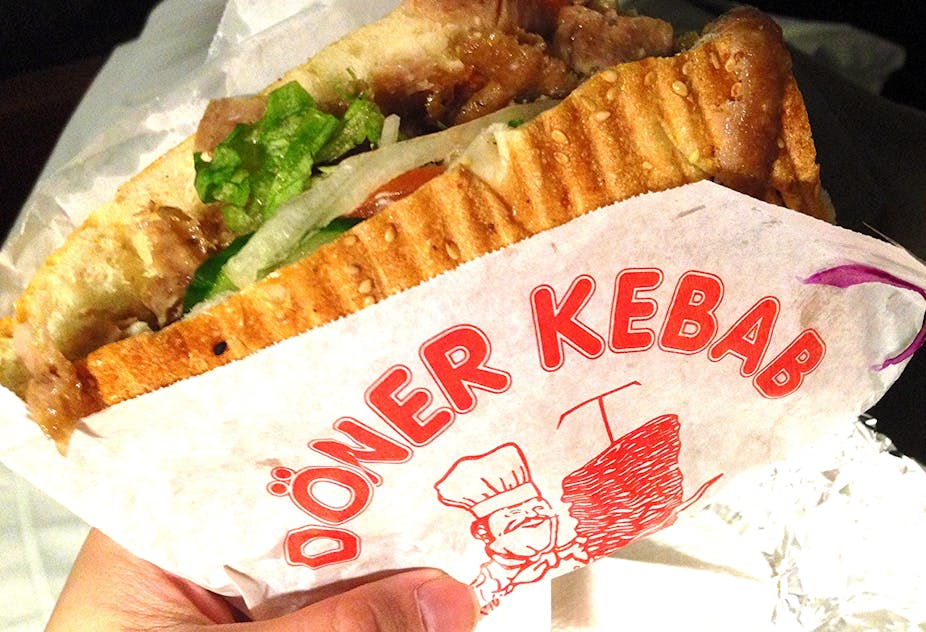
So that’s it for this tip guys, hopefully it’s given you something to think about. If you are addicted to the numbers like I used to be, and you keep avoiding any kind of different variables to go as fast as you can, then maybe you need to consider this before you fall out of love with running.
